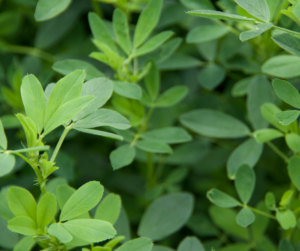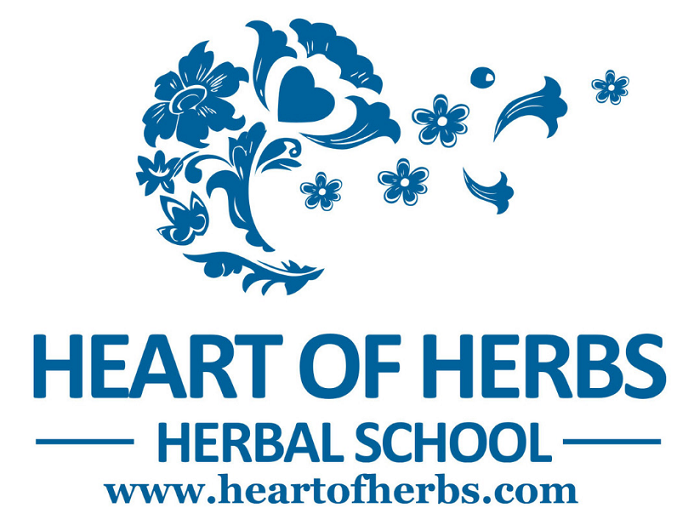Alfalfa (Medicago sativa): A Comprehensive Herbal Materia Medica
Alfalfa, a truly unique herb known scientifically as Medicago sativa, has a fascinating history. It has been a staple in both traditional folk medicine and modern herbalism, earning its Latin name, ‘Medicago,’ which signifies its healing properties. As a member of the legume family, alfalfa stands out for its nutrient-rich leaves and roots, making it a top choice for herbalists aiming to enhance overall health and well-being. In this comprehensive herbal materia medica, we delve into alfalfa’s rich traditional uses, its relevance in modern applications, and the precautions to be aware of.

Latin Name: Medicago sativa
Common Name: Alfalfa
Traditional Uses
Alfalfa, an herb with a history dating back centuries, is highly esteemed in folk medicine traditions worldwide. Ancient civilizations such as the Greeks and Romans recognized and utilized the medicinal properties of this plant to promote health and vitality. Traditional herbalists have commonly used alfalfa as a digestive aid, diuretic, and nutritive tonic. Its high mineral content, including calcium, magnesium, and potassium, makes it particularly valuable for supporting overall mineral balance in the body and bone health.
Modern Applications
In contemporary herbalism, alfalfa is a versatile herb, prized for its nutritive properties and wide range of health benefits. Here are some of its key modern applications:
Nutrient-Rich Tonic
Alfalfa is considered one of nature’s most nutrient-dense foods, containing vitamins (A, C, E, and K), minerals (calcium, magnesium, iron), and phytonutrients (chlorophyll, saponins). Incorporating alfalfa into the diet as a tea, supplement, or fresh sprouts can help support overall health and vitality.
Digestive Support
Alfalfa’s high fiber content and digestive enzymes make it beneficial for promoting healthy digestion and relieving digestive discomfort. It may help alleviate indigestion, bloating, and gas symptoms while supporting regular bowel movements.
Hormonal Balance
Alfalfa contains plant compounds known as phytoestrogens, which may help support hormonal balance in the body. It is often used by women experiencing menopausal symptoms, such as hot flashes and mood swings, as a natural alternative to hormone replacement therapy.
Cardiovascular Health
Alfalfa saponins have been shown to have cholesterol-lowering effects, making them potentially beneficial for cardiovascular health. In addition, regular usage of alfalfa may help reduce LDL cholesterol levels and improve overall heart health.
Detoxification
Alfalfa’s diuretic properties support the body’s natural detoxification processes by promoting urine production and eliminating waste products and toxins. It may be used as part of a gentle detox or cleansing regimen.
Folk Herbal Medicine Information
In traditional folk medicine, alfalfa was often used to treat various ailments, including arthritis, diabetes, and urinary tract infections. Its ability to support joint health and reduce inflammation made it particularly valuable for relieving arthritis symptoms and rheumatic conditions. Additionally, alfalfa was believed to stimulate milk production in nursing mothers and improve overall energy and vitality.
Contraindications
While alfalfa is generally considered safe for most people when consumed in moderation, it’s important to be aware of some precautions:
- Blood Thinners: Alfalfa contains vitamin K, which can interfere with the effectiveness of blood-thinning medications such as warfarin. Individuals taking blood thinners should consult their healthcare provider before consuming alfalfa supplements.
- Autoimmune Conditions: Alfalfa contains certain compounds that may stimulate the immune system. Individuals with autoimmune conditions such as lupus or rheumatoid arthritis should use caution when consuming alfalfa, as it may exacerbate symptoms.
- Allergies: Some individuals may experience allergic reactions to alfalfa, particularly if they have a history of allergies to legumes or grasses. Symptoms of alfalfa allergy may include skin rash, itching, or difficulty breathing.
In summary, alfalfa is not just an herb, but a powerful ally in your journey towards better health. Its nutritional benefits and therapeutic potential are unparalleled. Whether you’re a fan of traditional folk medicine or a modern herbalist, alfalfa is a shining star, ready to support your overall health and well-being.
Disclaimer
Disclaimer Blog
The information presented on the Heart of Herbs Herbal School/Demetria Clark websites is for educational purposes only. Heart of Herbs Herbal School/Demetria Clark Education LLC makes neither medical claims nor intends to diagnose or treat medical conditions. Links to external sites are for informational purposes only. Heart of Herbs Herbal School/Demetria Clark neither endorses them nor is in any way responsible for their content. Readers must do their own research regarding the safety and usage of any herbs, recipes, or supplements.
Affiliate Disclosure
Some posts contain affiliate links. When you click on these and make a purchase the cost is the same for you, but we earn a small commission that helps me to provide scholarships to students. We only promote products that we know our clients have liked themselves.
Heart of Herbs Herbal School is a Amazon affiliate. As an Amazon Associate, we earn from qualifying purchases.
